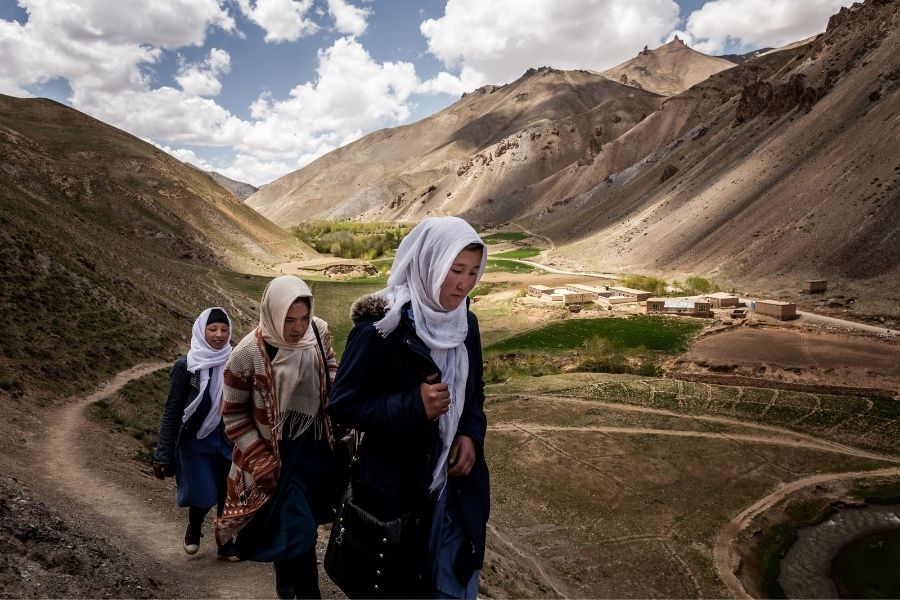
Afghan women fear the worst, whether war or peace lies ahead
Whether the Taliban take back power by force or through a political agreement with the Afghan government, their influence will almost inevitably grow

FILE - Students walk home from school in Yakawlang, Afghanistan, May 19, 2019. Whatever happens once the U.S. withdraws will not bode well for Afghan women. But even the gains made for them over the last 20 years have often been fleeting. (Jim Huylebroek/The New York Times)
KABUL, Afghanistan — Farzana Ahmadi watched as a neighbor in her village in northern Afghanistan was flogged by Taliban fighters last month. The crime: Her face was uncovered.
“Every woman should cover their eyes,” Ahmadi recalled one Taliban member saying.
People silently watched as the beating dragged on.
Fear—even more potent than in years past—is gripping Afghans now that US and NATO forces will depart the country in the coming months. They will leave behind a publicly triumphant Taliban, who many expect will seize more territory and reinstitute many of the same oppressive rules they enforced under their regime in the 1990s.
The New York Times spoke to many Afghan women — members of civil society, politicians, journalists and others—about what comes next in their country, and they all said the same thing: Whatever happens will not bode well for them.
Whether the Taliban take back power by force or through a political agreement with the Afghan government, their influence will almost inevitably grow. In a country in which an end to nearly 40 years of conflict is nowhere in sight, many Afghans talk of an approaching civil war.
©2019 New York Times News Service




